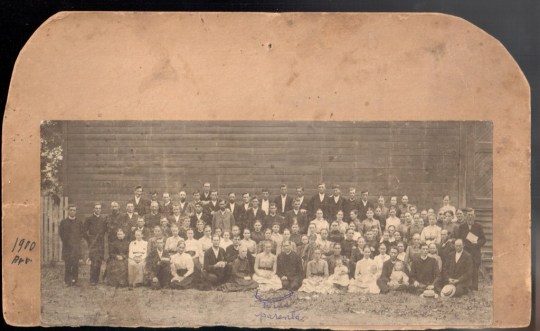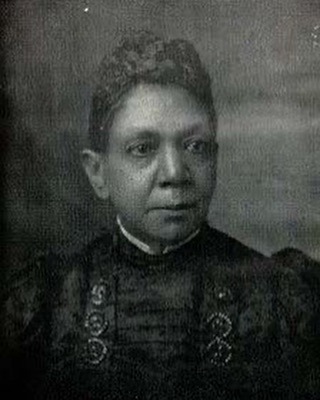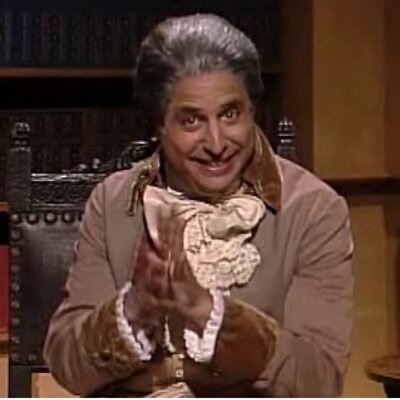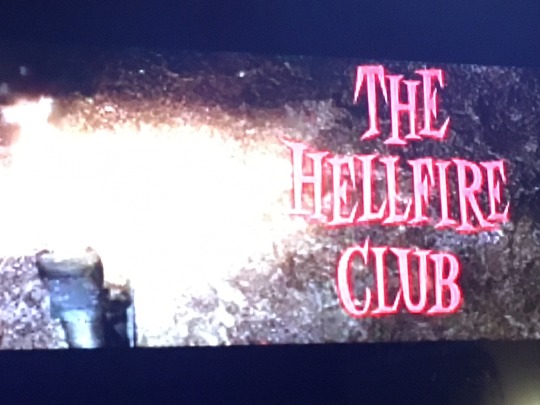#WCTU
Text
When it comes to you…

Synopsis: Atsumu Miya was sent to complete a hit on you, you both fell in love. But what happens when that love isn’t strong enough?
Warnings: Swearing, Mafia!Atsumu, MAJOR CHARACTER DEATH!!!, weapons mentioned, drinking, violence (very little but some is implied).

I’m trying to be more active! But nothing is promised i’m so sorry :( So here is a little something to hopefully keep me motivated (that i’ve had in my drafts for like a year 💀)

MASTERLIST:
“The way you see me, and the way I see you”
“Tie up some loose ends why don’t you”
Coming soon…
Coming soon…

TAGLIST!!! -open
@chaiyuuuu @multinci @bakusatxuki
#WCTU#Comeback era!!!#Welcome back Wynn!! <3#haikyuu angst#haikyuu!!#haikyuu x reader#angst#haikyū!!#haikyuu#atsumu x you#haikyuu atsumu#atsumu miya#atsumu angst
41 notes
·
View notes
Text
big dick tranny Kayleigh Coxx
Irene chilling
Immodest minded chicks turning kinky fantasies into reality
Gay men having sex on buses xxx Emo Boy Skye Loves That ginormous
Lesbian scene with two busty temptresses
Beatriz casada safada
Kaci Jones puts fox tail butt plug in her ass
Fitness Rooms Charlie Red and Renata Fox threesome with Indian Marina Maya
Download xxx anal extreme and big cut dick graphy gay Fisting the
Nurse Betty's hardcore sounding pt 3, the BIG 12mm rod makes a huge cumshot
#zamarras#shuttler#WCTU#unmusical#pompholix#Hurley#protyle#psychotherapy#listener#orchidist#ricordi#protoloph#convent's#recommender#hemisymmetrical#bulkier#amusable#instinctual#saboteurs#expertize
2 notes
·
View notes
Text
Pentecost Bands as Advocates for Social Purity
A group photo of Pentecost Band Members from 1900. (Courtesey Chris Hansen Family Photo Collection)
Historically, Free Methodism was tied to numerous social causes (and still is to this day). Its founding principles emphasized care and inclusion for everyone, strong abolitionist ties, and an emphasis on returning to the “old time Methodist” principles, such as entire sanctification. However,…

View On WordPress
0 notes
Text
Annoyed busty MILF stepmom revenge sucks his big cock
Suruba Amadora com Sandy Cortez e Amiga
Mi amiga Liliana de Durango
paradise hotel busan casino
Stepmom sucking on stepteens long tongue
Nudist Beach MILF Closeup Spycam Compilation
Domination xxx Cristi Ann may be a little too cute
JOJOS Final Adult JOLYNE CUJOH cartoon sex 2D hentai waifu stone ocean RULE 34 nude porn JOJO anime
Mature Giantess captures you in her bed & makes you Jack off before swallowing you POV
Legal age teenager pretty spreads for man on hot angel porn videos
#parallelinerved#Daukas#encydlopaedic#Pneumometer#quasi-morally#slick-looking#khesari#surcloy#dedition#nongrey#disimitate#uncaptioned#upcurrent#Briseus#coverings#liberals#zamarras#shuttler#WCTU#unmusical
0 notes
Text
The very first bill ever proposed by a female lawmaker in the United States came from Colorado state representative Carrie Clyde Holly in January 1895. Building on a decade of women’s activism, Holly’s ambitious legislation sought to raise the age of consent in the state to 21 years old. In 1890, the age at which girls could consent to sex was 12 or younger in 38 states. In Delaware, it was seven. […]
[…] Based on English Common Law dating back to the 1500s, American lawmakers had selected 10 or 12 as the age of consent to coincide with the onset of puberty, as if once a girl menstruated she was ready to have sex. Men accused of raping girls as young as 7 could (and did) simply say “she consented” to avoid prosecution. Reformers understood that once “ruined,” these young victims of assault could be forced into prostitution because no man would marry or hire a “fallen woman.”
Prostitution especially concerned wives and mothers because, before penicillin became widely available in 1945, syphilis and gonorrhea were more widespread than all other infectious diseases combined. Wives who unknowingly contracted STIs from their husbands could pass them on to their unborn children, resulting in miscarriages, fetal abnormalities, blindness, epilepsy and unsightly “syphilis teeth.” In most cases, women could not successfully sue for divorce, support themselves, or retain custody of their children if they did divorce. […]
[…] British purity reformers had succeeded in raising the age of consent to 13 in 1861, and the movement received international attention in 1885 after muckraking journalist William T. Stead went undercover in London’s brothels. Stead published a series of salacious articles, collectively titled “The Maiden Tribute of Modern Babylon,” in the Pall Mall Gazette detailing how London’s husbands and fathers paid top dollar to deflower child virgins in the city’s brothels. Within months, public outcry led Parliament to raise the age of consent to 16.
[…] Many lawmakers rejected women’s presence in public affairs and further resented the unprecedented campaign to curtail white men’s sexual prerogatives. So they stone-walled WCTU members, inserted neutralizing or mocking language in their proposed bills, and occasionally outright banned women from their galleries. The few legislators who went on record in support of young ages of consent voiced sympathy for hypothetical men who would be ensnared into marriage by conniving girls who consented to sex and later threatened to press charges. […]
[…] For years, black women—including Frances Ellen Watkins Harper and Ida B. Wells—had called attention to the fact that white men used rape as a tool of white supremacy. […]
White Southern lawmakers stridently opposed revised age-of-consent laws because they did not want black women to be able to charge white men with a crime. Kentucky state representative A. C. Tompkins went on record with his opposition, explaining, “We see at once what a terrible weapon for evil the elevating of the age of consent would be when placed in the hands of a lecherous, sensual n*gro woman,” insinuating that black women, who he claimed matured earlier and had a more sexual nature, would seduce men and then accuse them of assault. […]
- Kimberly Hamlin "What Raising the Age of Sexual Consent Taught Women About the Vote" 2020
376 notes
·
View notes
Photo


The Women’s Christian Temperance Union fought against drinking, gambling, card playing, and dancing.
But they were silent as African-Americans were “scourged, hanged, shot, and burned.” Historian Philip Dray wrote, “The WCTU had no word, either of pity or protest.”
9 notes
·
View notes
Text
last night one of the newly graduated high schoolers was talking to us about our experiences in high school and of course i was like i was a teetotaler lol and she was like madalyn they say straight edge these days and i was like no i say teetotaler because i ironically supported temperance organizations like the wctu.
6 notes
·
View notes
Text

A creative man is motivated by the desire to achieve, not by the desire to beat others.
#AynRand #FridayQuote
#QuiltBlock - WCTU from Household Journal - 1666 in #BarbaraBrackman #EncyclopediaOfPiecedQuiltPatterns
#Patchwork #Piecing #Quilt #Quilting #HunterDeuling #QOAB #quiltingonabudget
0 notes
Photo

The Prohibition-Era Effort To Make Mocktails Fun
The year of 1930 was a whirlwind for Washington, D.C. socialite Roxana B. Doran. Between hosting Daughters of the American Revolution chapter meetings, leading local church groups, and presiding over garden parties in Georgetown with husband Dr. James Doran, a government chemist, the 41-year-old Minnesota native was hard at work completing and promoting her authorial debut: a much-buzzed-about mixology guide called Prohibition Punches. The compilation of fruit juice-based drink recipes—dozens of frothy, alcohol-free concoctions that today could only be described as “mocktails”—was politically conscious, health-conscious, and status-conscious. It boasted a foreword by Harvey Washington Wiley, former chief chemist of the Department of Agriculture, and its illustrated pages were filled with the all-natural libations supposedly enjoyed by Washington, D.C.’s elite. This no-booze book aimed at the housewives of America could be nothing but political. The book amplified not just Doran’s platform as a prominent Women’s Christian Temperance Union leader but her husband’s agenda as well: Dr. Doran had served as Commissioner of Prohibition and was the government’s Administrator of Industrial Alcohol. “Proudly,” Time magazine observed in late 1929, “his wife tells friends that she ‘brings up the reinforcements.’” Roxana Doran’s publishing foray made headlines, some in praise of her efforts, and some gently mocking the book’s crusading recipes. But Prohibition Punches, surprisingly, turned out to be a commercial success. Even more surprisingly, the book may have provided a genuine contribution to American public health. By the time Roxana Doran began writing her book, the “Drys” were edging toward political defeat. Black-market alcohol had caused skyrocketing crime and alcoholism rates, and the financial fallout from the Great Crash of 1929 added political pressure to repeal the 18th Amendment. The Women’s Christian Temperance Union itself had waned in power since playing a key role in the amendment’s passage years earlier. Still, the international organization was as committed as ever to the cause. In September 1929, the scuttlebutt in society pages was that Doran was to be appointed director of WCTU’s newly created Non-Alcoholic Fruit Products Department. The cumbersome name obfuscated a simple goal: to promote healthy and tasty drinks made of fruit juices in lieu of the much-reviled liquor. The WCTU had recognized that, for the masses to truly embrace Prohibition as a way of life, non-alcoholic drinks needed to be made fun, festive, and glamorous. Enter the movement’s new unofficial first lady, Roxana Doran. “Since Dr. Doran is chief prohibition enforcement officer in the United States, appointment of his wife to serve as head of the new department for the promotion of nonalcoholic fruit beverages would place them in two of the most commanding positions in the fight against the liquor traffic,” observed a front-page article in the Indianapolis Star that September. Ever the consummate hostess (her name was a fixture in society pages), Doran preached that party libations could be crowd-pleasing while still following the letter of the law. "Prohibition took something away from the American people, but we can give them something just as good—a cocktail that satisfies but does not inebriate,” she announced. Doran by no means invented the modern-day mocktail (let alone coined the term “prohibition punches”). But her project aroused excitement among temperance-toeing women in both her elite D.C. social circle and across the nation. She spent several months picking brains and perfecting 12 initial “punches,” which she sent to the WCTU to distribute via pamphlet. She wasn’t above name-dropping, proposing that “each recipe be sponsored and named for some person whose opinion carries weight, perhaps a Senator or Congressman.” To this end, she snagged recipes allegedly created and enjoyed by Laura Volstead Lomen, the daughter of infamous Minnesota congressman Andrew Volstead, and Mabel Walker Willebrandt, the tenacious former U.S. Assistant Attorney General. Eventually, she even induced men such as Major General Smedley Darlington Butler, then history’s most decorated Marine to contribute a recipe, consisting of tea and several juices. By February 1930, the Ladies’ Home Journal had highlighted Doran’s project, and promotional photos of the mocktail maven whipping up drinks in her home kitchen circulated in newspapers across the country. “Mrs. James M. Doran, wife of our prohibition commissioner, tells us she gets letters from Maine to California asking for her recipe for kickless cocktails,” noted an Indiana paper’s news correspondent in Washington, D.C. With all this media attention Doran’s WCTU initiative soon ballooned into a full-length book. Each of the seven chapters are dedicated to a different hour of the day, with drinks ranging from “Frosted Orange Juice” and “Cantaloupe Cocktail” (to be served with breakfast) to lunch refreshments like “Raspberry Shrub” and “Honey Iced Chocolate.” Other recipes, including “Pineapple Smash,” “Mock Champagne,” and “Loganberry Frappé,” were to be ladled out during “Teas,” “Garden Parties,” “Summer Suppers,” and “Evening Parties, Receptions, Balls, etc.” Children had their own special drinks section. “There is even a vegetable cocktail for those interested in vitamins,” the book’s jacket advertised. “Cocktails or the breakfast room, the living room, the veranda, the dining-room, the ball room and even for the nursery. Drinks that are fizzy and drinks that are quiescent—smashes and swizzles and floats and sherbets and frappés and just plain punches—a generous assortment. Try them in your cocktail shaker!” Considering Prohibition’s polarizing nature (and the book’s purple prose), it’s no surprise that Prohibition Punches, published that summer by Philadelphia-based publishers Dorrance & Company, was received with mixed reactions. With every positive review—“It is written so colorfully and intelligently it would tempt even cocktail crusaders to mend their ways,” raved the Pittsburgh Press—mild criticisms arose. “Mrs. Doran has padded out this slender volume on a rather restricted subject,” sniped “The Literary Lantern,” a syndicated Southern newspaper column. “When you boil out the duplicates and come down to basic recipes there are not so many different tricks in the mixing of these non-alcoholic drinks.” Other magazines had humorous takes, notably Vanity Fair writer Corey Ford’s December 1930 tribute, “Have One on Me, Mrs. Doran,” which noted that the author’s elaborate recipes could all do with one simple extra ingredient: liquor. Doran reportedly gathered hundreds more alcohol-free drink recipes, yet Prohibition Punches was her first and only published recipe collection. In mid-1933 a new WCTU member stepped into Roxana Doran’s shoes as the organization’s elected fruit-juice proponent, only a few months before Prohibition was repealed entirely. Still, the book was moderately successful, receiving a second printing and generating enough chatter to keep its author in the news for several years. And while Prohibition Punches might read by some today as treacly or propagandist, there was a genuine public-health purpose behind its publication. Dr. Harvey Washington Wiley, who wrote a glowing introduction to Prohibition Punches shortly before his death in June 1930 at age 85, “was fairly fanatic about food safety and food purity,” says Deborah Blum, director of MIT’s Knight Science Journalism program and the author of The Poison Squad: One Chemist’s Single-Minded Crusade for Food Safety at the Turn of the Twentieth Century. He had spent his entire professional career fighting to pass 1906’s Pure Food and Drugs Act, but he couldn’t have done it alone: his strategic relationship with women’s groups like the WCTU had in no small way helped clean up America’s food, drink, and medicine. It’s fitting that one of the scientist’s last public writings prior to his death would be in the WCTU’s service. But why would Wiley, a noted enjoyer of fine whiskey, endorse Prohibition Punches at all? Much less as “a new line of thought” helping to pave the way for “a healthier and more contented mental attitude than American society has known since the chaotic period of the World War?” Wiley had fought against one thing for decades: poison. Bootleg liquor was frequently tainted, of which the crusading chemist would have been all too aware, and consuming it could lead to blindness, paralysis, and death. And as Blum wrote in another book, The Poisoner’s Handbook: Murder and the Birth of Forensic Medicine in Jazz Age New York, the federal government had also poisoned U.S.-manufactured industrial alcohols in the 1920s to enforce Prohibition. Their program alone may have resulted in the deaths of as many as 10,000 drinkers. “People like Al Capone were stealing industrial alcohol and trying to clean up the bad ingredients in it, and then repackaging it as bootleg whiskey,” Blum explains. “The bootleggers all hired chemists to clean up the whiskey, so the federal government came back and hired chemists to figure out how to make the whiskey so poisonous that it couldn't be cleaned up.” Among these government chemists was Roxana Doran’s own husband, James M. Doran. “I don't think Harvey Washington Wiley was ever out there pushing for Prohibition,” Blum says. “But I think he was always out there pushing for healthy eating and drinking habits. And I think that Prohibition would have made him very wary of what people were drinking. Unless you had an absolutely reliable good source of real alcohol, you were really risking your life every time you drank.” With this all in mind, one could read Prohibition Punches and “make a case that not only are these better for your body, but they could actually save your life,” Blum observes. Given the ubiquity of the era’s cocktail parties, she adds, it was shrewd for influencers like those in the book “to come in and say, ‘You can have a great life with these fancy, non-alcoholic drinks.’” Roxane Doran’s attempt to make fruit juice fashionable, in a way, may have helped protect Americans from tainted mixed beverages. With Prohibition’s repeal in December 1933, both the temperance movement and Roxane Doran’s mocktails slipped into distant memory. But irony remained alive and well: as the decade progressed, Dr. James Doran, husband to one of Prohibition’s most vocal cheerleaders and himself once described as occupying one of the nation’s “most commanding positions in the fight against the liquor traffic,” found himself acting as director of the government’s Distilled Spirits Institute.
https://www.atlasobscura.com/articles/prohibition-cocktails
0 notes
Photo

Sarah Jane Woodson Early, (November 15, 1825 – August 1907), was an educator, black nationalist, temperance activist, and author. A graduate of Oberlin College, where she majored in classics, she was hired at Wilberforce University as the first African American woman college instructor and she was the first African American to teach at an HBCU. She taught for many years in community schools. She was the principal of schools in four cities. Early served as national superintendent of the black division of the Woman's Christian Temperance Union and gave more than 100 lectures across five states. She wrote a biography of her husband and his rise from slavery that is included in postwar slave narratives. She became increasingly active in the WCTU, one of the numerous reform activities of the nineteenth century. She was a spokesperson for the Prohibition Party in Tennessee. #africanhistory365 #africanexcellence https://www.instagram.com/p/Ck-1YrFLLMD/?igshid=NGJjMDIxMWI=
0 notes
Photo

“Bus Service Into Park Is Sought,” Kingston Whig-Standard. June 11, 1942. Page 2.
----
The members of the parks committee of the City Council decided yesterday afternoon to do all in their power to see that the buses be allowed to go into Lake Ontario Park instead of discharging passengers at the Mowat Road just west of the Rockwood Hospital gates.
A Government regulation prohibits the buses from entering the park but stipulates that they are to discharge their passengers at the gate entrance to the park. The local manager of the bus company has declared that it is dangerous for the buses to turn around at the gate entrance and the buses have been discharging the passengers at the Mowat Road.
The extra electrical equipment for the tourist camp at Lake Ontario Park has been installed to meet the requirements of the hydro inspector, it was reported.
The flag pole at Macdonald Park which was painted recently was condemned by the painter as being dangerous The top 40 feet of the pole is made of wood and has rotted through/ The committee decided to allow the pole to remain for the summer months but will take it down in September.
A letter was read from Auxiliary Sendees Officer of M.D. No. 3 Lt.-Col. C. H. Ackerman thank' ing the parks committee for providing baseball diamonds at the Fair Grounds for the use of the men In uniform. The three backstops that were erected were purchased out of the $300 that the Civic Recreation Centre provided for the recreation of the soldiers during the summer.
A second letter was read from Dr. F. W. Atack, chairman of the Kingston War Services, requesting that the Civic Recreation Centre be opened as soon as possible for the troops but it was the decision of the committee that there was enough recreation available for the men in uniform for the summer months and the centre would re-open in the fall.
W.C.T.U. Fountain
The city engineer was asked to prepare an estimate on the cost of removing and enlarging the WCTU memorial fountain at Macdonald Park and to report back to the committee The overflow pipe Is not large enough and its present location is considered a hazard to the safety of the children using it.
The Aluminum Company employees plan to hold a picnic for their families on Civic Holiday Aug. 3 and requested the use of Lake Ontario Park. The request was granted but the grounds could not be kept private tor the picnic as it is a public park. The private use of the dance hall during the afternoon was granted.
#kingston ontario#municipal government#municipal politics#parks and recreation#parks department#public parks#tourist camp#civic holiday#mass transit#bus service#canada during world war 2
0 notes
Text
"During Archibald's involvement with the WCTU, she focused on campaigning against issues such as domestic violence, child neglect and poverty. After being elected President of the WCTU in 1892, Archibald worked alongside other women to campaign for community services to better the lives of women and children. This included creating libraries and orphanages. Archibald also pushed for women's suffrage during her time at the WCTU. A motto used was 'Agitate, Educate, Legislate'."
#Edith Archibald#Edith Jessie Archibald#Canada#activist#women#history#interesting ladies on wikipedia
1 note
·
View note
Text



In which we learn about early feminist organizations coming from unlikely sources, and also dumbass aristos being sleazy. Hellfire and Carrie Nation! Join us won’t you?
#madness madness podcast#comedy podcast#comedy#cult podcast#sex cults#hellfire#wctu#sonic drive in#benjamin franklin#librarian podcasts
2 notes
·
View notes
Photo




Sunday Nite
Dear Pop,
Wrote small section of the “community letter” this afternoon. (1)
Cont. Monday
Last nite, as I just got started on this, word came through the grapevine that the O.D. (2) was really inspecting and being quite nasty. So was all ducked our letters and got studying. Ordinarily, they don’t say anything if you are writing letters, but this guy was a new 2nd L. And I guess he was a little scared.
Had an interesting trip to State Police H.Q. at Trenton this afternoon. We just got back. Had quite a talk with the ballistics expert. (3) That’s dog gone interesting work. They had quite an arsenal of pistols there. Everything from toy guns to a Germ. Mauser (4), which really looks like a weapon.
The trip to Newark was very nice in some respects and sort of boring in others. (Better not repeat to Mom.)
Sat. Morning at Radio City was the only chance I had to talk to Bertie alone, and you can’t very well talk in a theatre. (5) On Sunday, Hedwig (6) had Millie & Carrie (7) and Eleanor Koenig (8) over for dinner. Everything resolved itself to M & C & H. Talking about their trips and Bertie and me not getting a chance to even yawn. But the folks were all swell to us in their own way. Bertie got a lot of swell presents from everyone as you can imagine.
Some silly jerk just decided that we should have gas mask drill on our own time tonight. It makes me sore. We have little enough time as it is and why the hell they don’t let us alone is beyond me. Any dumb jerk that can’t get his mask on in 15 seconds deserves to be gassed anyway.
The grind here is tough, but I think it is the uncertainty of everything plus the futility of it that gets most of us.
As I have said before, the guys here fall into about three rough groupings. 1) This is one bunch that is scared silly to be sent to combat and will do most anything to keep out. [redacted] 2) A bunch of guys who for various reasons would never be any good in combat anyway (I-B’s older fellows) 3) Another bunch of us who are young, active and physically fit who are itchy and want to see some chance for advancing or at least a goal somewhere. So far, we have been offered nothing as a reward for grinding like hell around here. There are some who say “You should be happy to have the opportunity to just study” But I don’t go for that. The only reason I ever studied or ever wanted to study was so I could advance along some lines, then I lose interest. And that is just what is happening to a lot of guys around here.
In spite of the WCTU (9), I agree with you as to drinking as a means of relaxation (10). And as long as it does not interfere with other duties, I think it is O.K. In fact, the army says that a man over 20 who says he never drinks is a misfit. (11) That was one of the questions asked of the O.C.S. (12) group from Croft. Do you drink? Those who hesitated were thrown out immediately. Those who said “Yes” were not quizzed further. Those who said “No” were asked “Why not?”
Once in a while, a few of us go over to the Nassau Tavern (13) for a beer or a high ball. But as is the general case in the army (with privates anyway) the cost is too great. So the drinking is limited.
Thanks very much for the [unclear](14). At the rate I’m going it isn’t going to take too long to finish these up. I like that variety.
As far as money is concerned, I’m O.K. Costs a great deal more here than in camp. About $2.00 (15) weekly for uniforms and laundry. Won’t be able to save quite as much (16).
Well, have to fall out with gas masks now.
Love,
Henry
Whatever this was, was neither explained further nor enclosed
I think this means Officer on Duty.
Great Niece who falls asleep listening to true crime podcasts is sitting here like - https://images.app.goo.gl/dXVTJ4Cqbr8U8qUTA
Even pre 1945 there were 16 different kinds of Mauser, more specificity please - https://en.wikipedia.org/wiki/Mauser
If only that were still true!! **sigh**
AKA, “Cousin Hattie”
Not 100% sure who they are and they’re not showing up on my extensive family tree, but I kinda recognize the names.
Ugh, again Koenig is a family name but not showing up on my tree. Sigh…
Contextually, I’m going to go with Women’s Christian Temperance Union - https://en.wikipedia.org/wiki/Woman%27s_Christian_Temperance_Union
“Cheers” says his great niece, lifting her evening glass of Shiraz. (Bear in mind, however, that prohibition was only repealed about 10 years prior, so this was all a bit more debatable at the time.)
I didn’t even try to verify the authenticity of that statement - instead have this fascinating summary of the attitude toward drinking in WWII - https://warontherocks.com/2015/06/a-farewell-to-sobriety-part-two-drinking-during-world-war-ii/
Officers Candidate School
I think, this might possibly still exist, maybe? https://www.nassauinn.com/dining/
I have stared at this for 5 minutes and can’t even figure it out contextually.
$29.75 - according to Business Insider, the average yearly dry cleaning bill is $500, which boils down to $9.62 a week - quite a difference. But, when you’re stuck in a dorm in 1943, with limited laundry options . . .
Sadly, one thing I did not inherit is the New England parsimony. I could learn a bit here.
#princeton#new jersey#radio city music hall#WCTU#wwii#world war 2#basic training#army#letters#handwriting
1 note
·
View note
Photo

The Woman's Christian Temperance Union (WCTU) was founded in November 1874 in Cleveland.
98 notes
·
View notes